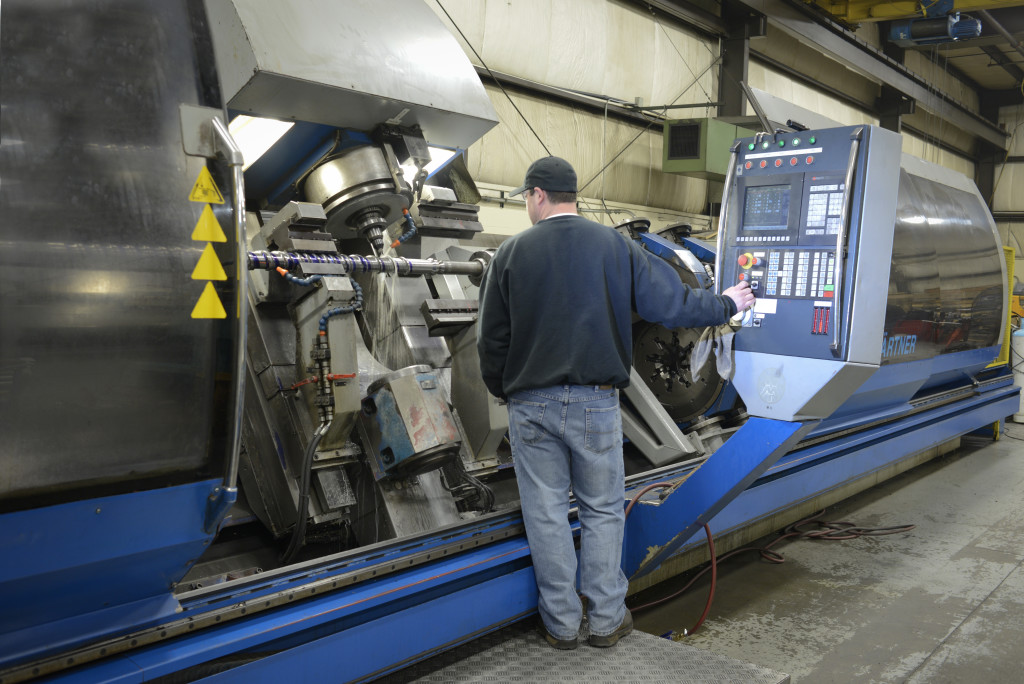By the time Cody Rowe was halfway through his senior year in high school, he already had nearly a year’s worth of skilled-trades experience under his belt — experience he gained not just in a classroom, but on the job as a welder for a local company.
Rowe is one of literally hundreds of Lenawee County students who have been trained for the manufacturing careers of tomorrow through an education system that works hard to make sure its students are ready to meet the needs of a changing economy.
“What they learn in the classroom is what they apply here,” said Matt Shalosky, owner of Hornet Manufacturing in Hudson, where Rowe and several other students are putting their skills to real-life use.
The “skills gap” is a well-documented problem across the United States.
ManpowerGroup’s most recent Talent Shortage Survey showed that even with unemployment high, 40 percent of U.S. companies reported having trouble filling jobs due to a shortage of employees with the right skills.
But in Lenawee County, schools, businesses and economic development agencies have been working in a broad-based partnership to find solutions — and in the process, they’ve begun establishing Lenawee County as a premier place to run a business.
It wasn’t always that way. Jim Van Doren, executive director of Lenawee Now, can recall a time when “all of our major manufacturers came to us and said ‘We can’t find entry-level people to hire in Lenawee County.’”
The problems weren’t just with technical abilities, but also with the “soft skills” needed to succeed in any workplace. Tim Robinson, director of operations for Lenawee Now, heard stories about people coming to job interviews in cutoffs and flip-flops. One company even had an applicant answer his cell phone to chat with a friend during his interview.
Solving the problem and making Lenawee County a leader in workforce education has been a multi-pronged task that Lenawee Now and its partners have tackled with enthusiasm.
1. Lenawee Now collaborates with local manufacturers
For one project, Lenawee Now recruited four students from Adrian College to interview over 25 local manufacturers about what they needed from an entry-level employee. The data they collected was compiled into a booklet aimed at students, parents and guidance counselors; it included information about hard and soft skill sets as well as possible career paths within each company.
2. Lenawee Now bridges education and job opportunity
Lenawee Now also worked with the Lenawee Intermediate School District TECH Center, which recently marked its 45th anniversary, to organize a reverse job fair in which students displayed their projects to an audience of local employers. That’s how Cody Rowe got connected with Hornet Manufacturing and Matt Shalosky.
“The LISD has been cooperative with industry and responsive to our needs,” said Shalosky, who plans to continue recruiting TECH Center students for his business. “I don’t know that I could ask any more of them. They’re doing all the right things.”
Each of the more than two dozen programs at the TECH Center — which range from automotive technology to building trades, from computer programming to advanced manufacturing — has an active advisory board filled with representatives of local employers who make sure the curriculum stays relevant and up to date.
3. Lenawee Now is reviving manufacturing’s appeal to youth
Lenawee Now and the TECH Center also serve as advocates for modern manufacturing, making sure young people know that — in Van Doren’s words — “manufacturing jobs are not the old, dirty, non-technical jobs of the ’50s, ’60s and ’70s.”
The results are clear. In 2014, the Adrian area was recognized by Site Selection magazine as one of the nation’s top 100 micropolitan areas with economic development projects. The booklet Lenawee Now assembled with the help of its interns from Adrian College led to recognition on a global scale with an Excellence in Economic Development Award from the International Economic Development Council.
And perhaps most importantly, businesses of all sizes can be confident that in Lenawee County, they’ll have the backing of an educational and economic development community that understands their needs and will work tirelessly to make sure the graduates of local schools are equipped for the careers of tomorrow.

